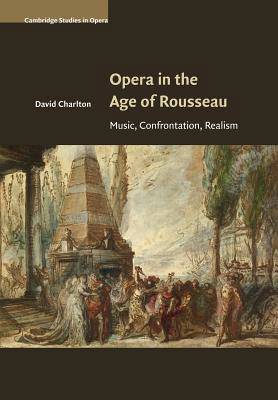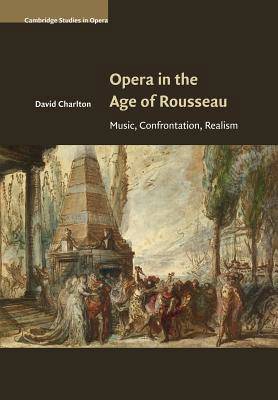
- Afhalen na 1 uur in een winkel met voorraad
- Gratis thuislevering in België vanaf € 30
- Ruim aanbod met 7 miljoen producten
- Afhalen na 1 uur in een winkel met voorraad
- Gratis thuislevering in België vanaf € 30
- Ruim aanbod met 7 miljoen producten
Zoeken
€ 67,95
+ 135 punten
Uitvoering
Omschrijving
Historians of French politics, art, philosophy and literature have long known the tensions and fascinations of Louis XV's reign, the 1750s in particular. David Charlton's study comprehensively re-examines this period, from Rameau to Gluck and elucidates the long-term issues surrounding opera. Taking Rousseau's Le Devin du Village as one narrative centrepiece, Charlton investigates this opera's origins and influences in the 1740s and goes on to use past and present research to create a new structural model that explains the elements of reform in Gluck's tragédies for Paris. Charlton's book opens many new perspectives on the musical practices and politics of the period, including the Querelle des Bouffons. It gives the first detailed account of intermezzi and opere buffe performed by Eustachio Bambini's troupe at the Paris Opéra from August 1752 to February 1754 and discusses Rameau's comedies Platée and Les Paladins and their origins.
Specificaties
Betrokkenen
- Auteur(s):
- Uitgeverij:
Inhoud
- Aantal bladzijden:
- 436
- Taal:
- Engels
- Reeks:
Eigenschappen
- Productcode (EAN):
- 9781107504349
- Verschijningsdatum:
- 26/03/2015
- Uitvoering:
- Paperback
- Formaat:
- Trade paperback (VS)
- Afmetingen:
- 170 mm x 244 mm
- Gewicht:
- 689 g

Alleen bij Standaard Boekhandel
+ 135 punten op je klantenkaart van Standaard Boekhandel
Beoordelingen
We publiceren alleen reviews die voldoen aan de voorwaarden voor reviews. Bekijk onze voorwaarden voor reviews.











